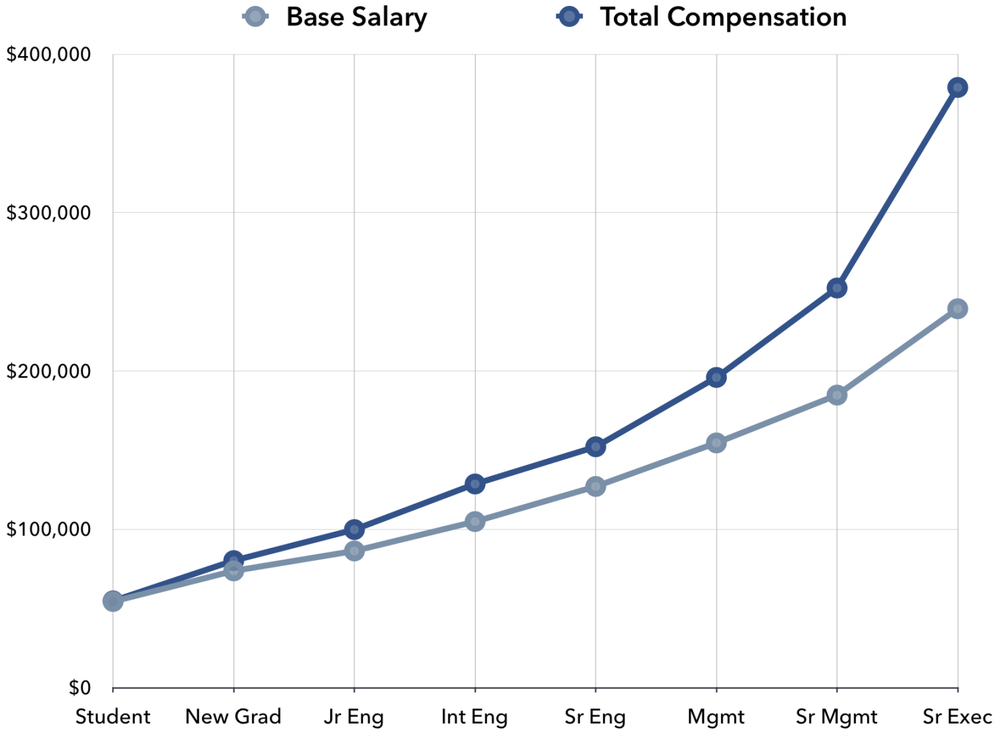
You are not the only one who has ever wondered how to become an electrician. While you may be aware that this profession requires years of schooling and extensive experience, it is possible that you are still unsure how to start. Read on to find out what it takes to be an electrical engineer. Once you've decided to pursue this career path, you'll need to take the time to learn all about it, which can help you get started on your journey to success.
First, you will need to earn a 4-year degree in electric engineering. While some companies accept candidates with a related degree, a four-year college education is required for most positions. Accreditation by the Accreditation Body for Engineering Technology (ABET) is required to obtain the appropriate credentials. After graduating from college, you'll be an intern or "engineer-in-training" before you take the Professional Engineering (PE) exam.

You'll need to take many courses to earn an undergraduate degree. You can choose to take a two-year program of engineering technology or a fouryear degree. The former will be more theoretical and practical than the latter. Four-year programs will teach you electricity, power plants and electrical circuits. You will be able to apply for entry-level jobs in the industry by the time you have graduated.
Many benefits can be derived from a career as an electrical engineer. Aside from the pay, you will also receive healthcare insurance and an education compensation package. If you have the necessary skills, there is no reason not to consider this career path. This career path requires you to be analytical, logical, creative, and passionate about learning new things. You're probably on the right track if you possess these skills. You'll be glad to have chosen it. You'll also love working with your hands!
To become an electrical engineer, you must complete a bachelor's degree. The bachelor's degree prepares you to work in various industries. It will also require a solid understanding of mathematics. It is necessary to know both the theory and the practical aspects of electrical engineering. A graduate degree will give you a distinct advantage in your job search. A professional engineer's licence is required.

If you have analytical skills and a curiosity to learn more about the world around you, you might be a good candidate for a career as an electrical engineer. You won't be capable of seeing the electrons swirling through a circuit, or the electromagnetic waves emanating form an antenna. It's essential to have an inherent interest in engineering. An electrical engineer can work in a variety of fields and is responsible for a dizzying amount of innovation.
FAQ
What are the jobs I can get as an engineer?
Engineers can find work in almost all industries, including manufacturing and transportation.
Engineers who specialize can often find employment at specific organizations or companies.
For example, electrical engineers may work for telecommunications companies, medical device manufacturers, or computer chip makers.
Software developers can work as website or mobile app developers.
Computer programmers could work for tech companies like Google or Microsoft, Apple, Amazon or Facebook.
Engineering: What does it mean?
Engineering can be described as the application and production of useful things using scientific principles. Engineers apply their scientific and mathematical knowledge to create machines, vehicles, buildings and bridges, as well as aircraft, spacecraft and robots.
Engineers can be involved in research, development, maintenance, testing and quality control. They also have the ability to teach, consult, and make decisions about law, politics and finance.
Engineers have many responsibilities. They can design and build products, systems and processes; manage projects; perform tests and inspections; analyze data; create models; write specifications; develop standards; train employees, supervise workers and make decisions.
Engineers can specialize in certain fields, such as mechanical, electrical, chemical, civil, architectural, computer, biomedical, manufacturing, construction, aerospace, automotive, nuclear, petroleum, mining, forestry, geology, oceanography, environmental, and more.
Some engineers focus on a specific type of engineering.
What kind of engineer is Elon Musk?
He is an inventor who likes to think beyond the box.
He is also a risk-taker.
He's not afraid to experiment with new ideas and is open to taking risks.
Elon Musk represents a great example for someone who thinks differently. He doesn’t believe what everyone else is saying. Instead, he experiments with his own ideas before deciding whether or not they work. He changes his ideas if they don’t work and then he tries again until he has something that works. He is able to develop new ideas and solve problems.
What is a Mechanical Engineer?
A mechanical engineer is responsible for designing machines, tools, products, processes, and vehicles that are used by people.
Mechanical engineers use mathematics, physics, and engineering principles to create practical solutions to real-world problems.
A mechanical engineer can be involved in product design, production, maintenance quality control, research, testing or sales.
How much do engineers make an hour?
This will vary from person-to-person and company-to company. An entry-level software engineer can earn around $60,000 annually. After you have been working for a few more years, your average salary may rise to over $100,000.
Statistics
- Job growth outlook through 2030: 9% (snhu.edu)
- 8% Civil engineers solve infrastructure problems. (snhu.edu)
External Links
How To
The United States has the highest salaries for engineers
The US average engineer salary is $100k a year. This includes the base pay as well as bonuses, benefits, and other perks.
The median annual wage for all workers was $50,090 in May 2014.
This is an increase from $48,671 in 2013.
Software Developer (65,000), Computer Programmer (60,000), and Systems Analyst (55,000 were the most common job titles).
Based on where you reside, salaries can vary greatly. In New York City, salaries range from $80,000-$120,000.
San Francisco engineers can expect to make $90,000-$150,000.
Those in Washington DC can expect to make $85,000-$130,000.